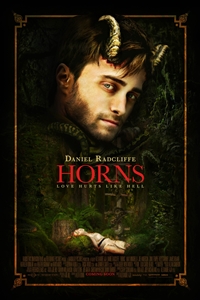
Pavel Aksenov Poslednyaya Vera

Contents • • • • • • • • Early life [ ] “ 'When I was in Kazan during my student years, I was under surveillance by the KGB. I didn’t realize it at first—it was only after they began 'inviting' my friends in to talk that I realized they were following me, and our whole group. It wasn’t like it is here at an American university—we were all one group in our class, a group of about 30 which existed together the entire six years of study; we had all of our classes together and were all living together. ' ” — Vasily Aksyonov remembers his life as a student, Vasily Aksyonov was born to Pavel Aksyonov and in, on August 20, 1932. His mother, Yevgenia Ginzburg, was a successful journalist and educator and his father, Pavel Aksyonov, had a high position in the administration of Kazan. Both parents 'were prominent communists.' In 1937, however, both were arrested and tried for her alleged connection to.
Pavel Aksenov Word Health Organization, Moscow, Russian Federation Massimo Barra Vice-President of the International Red Cross Director of 'Villa Maraini' Therapeutic Community, Rome Mauro Cibin Director of the Department of Drug Addiction, Dolo, Italy, EU Giovanni Umberto Corsini Professor of Pharmacology, University of Pisa, Italy, EU. Socialism to be found in the celebrated 'Fourth Dream of Vera Pavlovna', part of. Among them are the 'brainstorming' author and scientist Pavel Amnuel – he. Includes the powerful Post-Holocaust novella 'Poslednyaya pastoral' (1987. #8) by Ales Adamovich as well as works by C Aitmatov, Vasily Aksyonov and V.
They were both sent to and then to exile, and 'each served 18 years, but remarkably survived.' 'Later, Yevgenia came to prominence as the author of a famous memoir, Into the Whirlwind, documenting the brutality of Stalinist repression.' Aksyonov remained in Kazan with his nanny and grandmother until the arrested him as a son of ', and sent him to an orphanage without providing his family any information on his whereabouts. Aksyonov 'remained [there] until rescued in 1938 by his uncle, with whose family he stayed until his mother was released into exile, having served 10 years of forced labour.' 'In 1947, Vasily joined her in exile in the notorious, prison area, where he graduated from high school.'
Vasily's half-brother Alexei (from Ginzburg's first marriage to Dmitriy Fedorov) died from starvation in besieged in 1941. His parents, seeing that doctors had the best chance to survive in the camps, decided that Aksyonov should go into the medical profession. 'He therefore entered the and graduated in 1956 from the ' and worked as a doctor for the next 3 years.
During his time as a medical student he came under surveillance by the KGB, who began to prepare a file against him. It is likely that he would have been arrested had the liberalisation that followed Stalin's death in 1953 not intervened. Career [ ] Reportedly, 'during the liberalisation that followed Stalin's death in 1953, Aksyonov came into contact with the first Soviet countercultural movement of zoot-suited hipsters called (the ones 'with style').'
Bichhoo movie songs mp3 download. Tags: Download Bichhoo Songs 2000 Mp3 Songs,hindi movie Mp3 Songs of Bichhoo Songs 2000 download,download bollywood movie songs Bichhoo 2000 Mp3 Movie Songs,320Kbps & 128Kbps, 190Kbps format, Download full album of Bichhoo 2000 free, Original Mp3 Songs of Bichhoo Songs 2000, Original CD rip,itunes rip,amazon rip Free Downloads, Bichhoo 2000 Mp3 Songs Free Download, Download Free,Download CD Rip of Bichhoo Songs 2000 Mp3, Bichhoo 2000 free mp3 songs,mp3 songs of Bichhoo 2000,hindi movie songs mp3 hindi movie songs Bichhoo 2000 songs mp3 download free mp3 songs.
Pirates of silicon valley download. As a result, He fell in love with their slang, fashions, libertine lifestyles, dancing and especially their music. From this point on began his lifelong romance with jazz. Interest in his new milieu, western music, fashion and literature turned out to be life-changing for Aksyonov, who decided to dedicate himself to chronicling his times through literature. He remained a keen observer of youth, with its ever-changing styles, movements and trends. Like no other Soviet writer, he was attuned to the developments and changes in popular culture. In 1956, he was 'discovered' and heralded by the Soviet writer for his first publication, in the liberal magazine Youth. 'His first novel, Colleagues (1961), was based on his experiences as a doctor.'